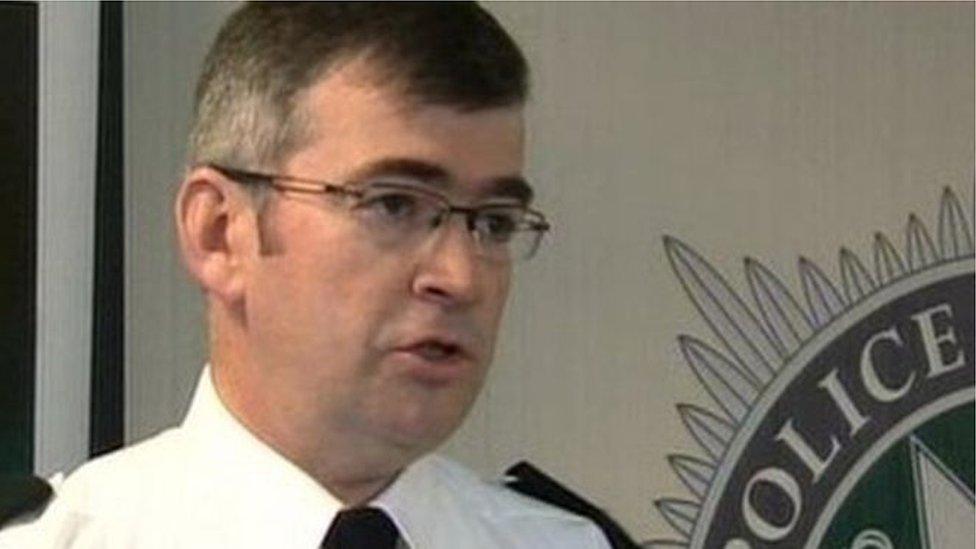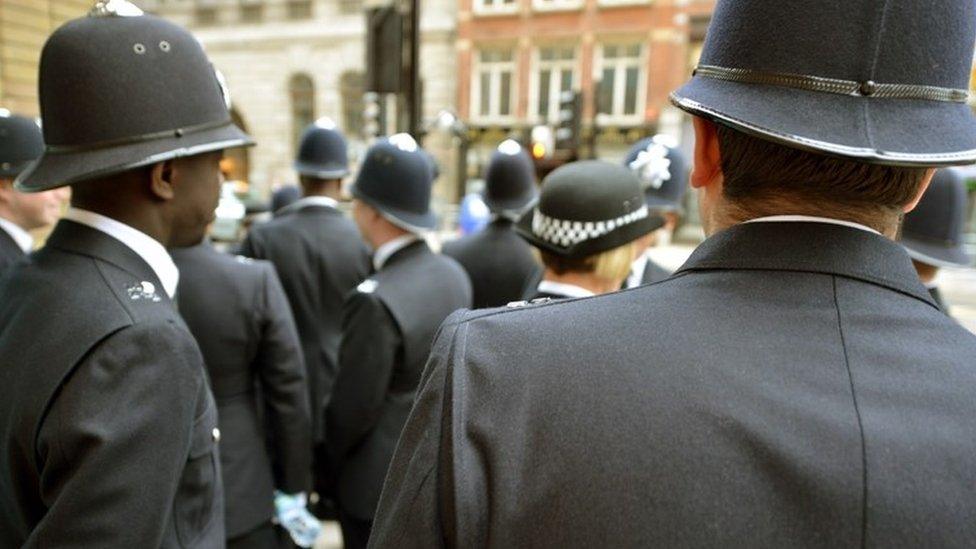PSNI officers take court action over holiday pay
- Published

The officers claim they are owed money dating back almost 20 years
More than 1,000 Police Service of Northern Ireland officers are taking legal action over holiday pay.
The officers, who are being backed by the Police Federation, claim they are owed money dating back almost 20 years.
Their case against the PSNI chief constable follows a landmark court ruling on UK holiday pay rules in 2014.
Deputy Chief Constable Drew Harris told the BBC's Nolan Show the PSNI would be seeking "clarity in the courts".
He said it was "understandable" that officers should seek their entitlements, but added that because of the amount of money involved, the case could have an impact on the PSNI's operations.
'Time of austerity'
The 2014 court ruling was made in a case known as Bear Scotland v Fulton, when judges decided that employees who were regularly required to work overtime should get extra holiday pay.
Some police forces in Great Britain have already settled claims with officers.
The Police Federation of Northern Ireland is representing about 1,300 officers in court action against the PSNI.
A smaller group of officers are taking a separate case.

Drew Harris said he would be seeking 'clarity in the courts'
The claims are retrospective and lawyers have suggested they could stretch back to 1998 when the Work and Pay Regulations were introduced in the UK.
In a statement to the Nolan Show, the PSNI's deputy chief constable said: "At a time of austerity, I must manage scarce resources prudently so as to best protect the people of Northern Ireland.
"It is perfectly understandable that PSNI officers and staff should seek to avail themselves of their entitlements in relation to overtime and holiday pay.
"However, there are difficult points of law which mean that I would be failing my responsibilities if I didn't seek clarity in the courts, especially when the potential sums of money at stake are very large and would have direct operational impact upon policing in Northern Ireland."
- Published17 March 2016
